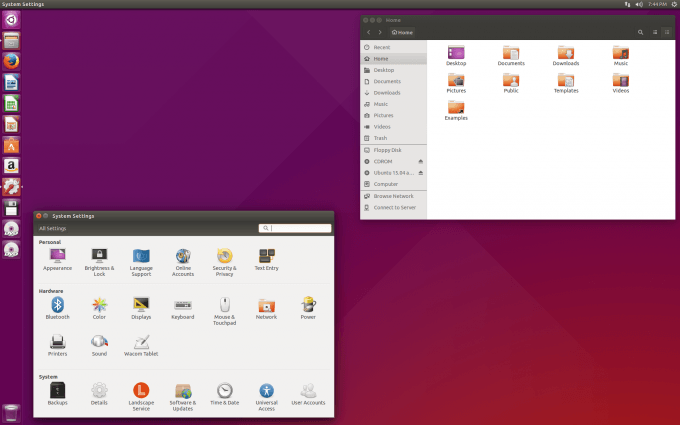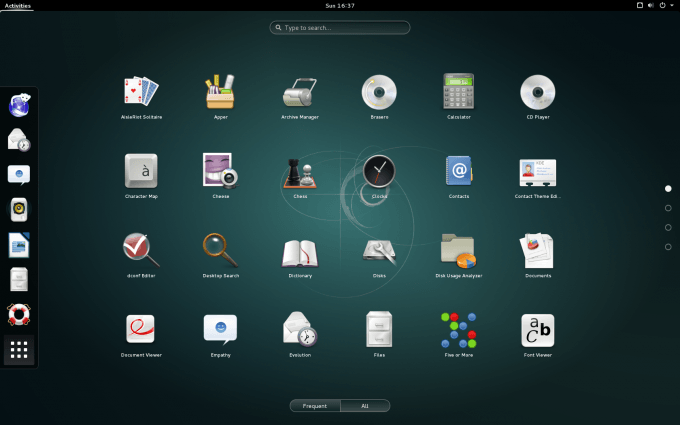- Qualcomm Launches Snapdragon 4 Gen 2 Mobile Platform
- AMD Launches Ryzen PRO 7000 Series Mobile & Desktop Platform
- Intel Launches Sleek Single-Slot Arc Pro A60 Workstation Graphics Card
- NVIDIA Announces Latest Ada Lovelace Additions: GeForce RTX 4060 Ti & RTX 4060
- Maxon Redshift With AMD Radeon GPU Rendering Support Now Available
United No More: Canonical To Replace Unity With GNOME In Ubuntu 18.04 LTS
In some shocking news that comes a wee bit too close to April Fools’ Day, Ubuntu and Canonical founder Mark Shuttleworth announced via the Ubuntu blog that the Unity desktop environment is not going to be in the OS’ future. Canonical moved Ubuntu from GNOME to Unity about seven years ago; now, it’s going back.
In the aforementioned post, I said, “Make no mistake, this is a huge, and very risky move,” and that’s something that could be said about this move, as many people using Ubuntu today use Unity, and many of those are not going to feel too comfortable upgrading to a newer OS that doesn’t have it.
This move doesn’t signal that something is wrong at Canonical; rather, it’s the result of realizations that have been made, and changing focuses. Unity was designed from the ground up to be a desktop environment for more than just the desktop, but with Canonical having pulled the plug on Ubuntu Phone, Unity becomes nothing more than a burden. If you’re skeptical about Ubuntu’s future, Shuttleworth would like to reassure you:
I’d like to emphasise our ongoing passion for, investment in, and commitment to, the Ubuntu desktop that millions rely on. We will continue to produce the most usable open source desktop in the world, to maintain the existing LTS releases, to work with our commercial partners to distribute that desktop, to support our corporate customers who rely on it, and to delight the millions of IoT and cloud developers who innovate on top of it.
At this point, it’s almost hard to picture the mainline Ubuntu having a desktop environment other than Unity. I never particularly enjoyed Unity, but I’ve become accustomed to it over time as it’s what I stick with Linux benchmarking purposes, and I did like to check out what was new from time to time. I do happen to love GNOME, so this is a move that’s great for me personally, but your opinions and realities could differ.
Fans of Unity shouldn’t stress too much right now, as the environment is not going to disappear overnight. It does mean, though, that in time, you’ll have to go out of your way to install Unity if you wish to keep using it, much like how you can install Ubuntu now and add another desktop environment to it afterward.
Whatever your opinions on Unity are, this is an unexpected move for most, and a sad one for many. However, as Canonical looks to IoT and the cloud, the focus has now been placed more on the OS itself, rather than the desktop environment.
Despite all that, this news is still a bit hard to digest. If there’s an immediate upside, it’s that Shuttleworth, and by extension, Canonical, are being very up front about its plans, giving Unity fans a lot of time to figure out their own next move.






